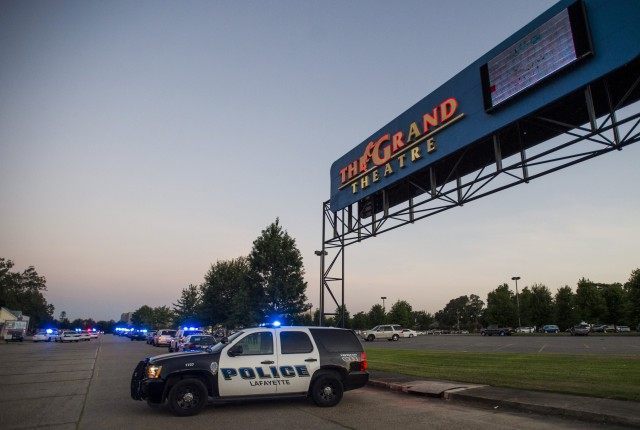With claims that alleged Lafayette gunman John Russell Houser was committed to a mental institution in Georgia gaining steam, Carroll County Probate Judge Betty Cason is making it clear she never ordered him committed.
According to the AP, a case revolving around Houser “came before Cason’s court in 2008 when Houser’s family asked her to intervene in Carroll County, where he had allegedly menaced his daughter and in-laws.” On April 22, 2008, Cason signed an order “authorizing deputies to detain Houser and take him, against his will if necessary, to a treatment facility for a mental health evaluation.”
Houser was subsequently “delivered by deputies to [a] hospital for evaluation,” but Cason said no order for commitment followed.
The order for evaluation gave the hospital five days in which to examine Houser. At the end of that five-day period, they had the option to convince him to voluntarily commit himself—if they believed that necessary—or seek a court order forcing him to remain in the hospital for an extended time. Cason says she did not issue such an order and that anyone seeking it would have gone to the Muscogee County Probate Court because the hospital was in Muscogee County.
On July 27, Muscogee County Probate Court Judge Marc D’Antonio said that “privacy laws prevent him from saying whether Houser ever appeared before his court.” However, he made clear that if any mental health orders had been issued, those orders and the consequent commitment to a hospital would have been sent “to Georgia’s statewide criminal records system, and those records… [would have] eventually fed [into] a federal database run by the FBI.”
But no such records appeared during Houser’s background check—which “came back clean”—making it appear there was never an order for commitment.
So how did reports that Houser was committed get started? According to the AP, while Houser was being evaluated in the hospital in 2008, “his family’s lawyer, Candace Rader, sought and obtained a protective order from another Carroll County judge after writing — mistakenly, as it turns out — that an ‘Order of Involuntary Commitment’ had been issued two days earlier by the probate judge.”
Follow AWR Hawkins on Twitter; @AWRHawkins. Reach him directly at awrhawkins@breitbart.com.

COMMENTS
Please let us know if you're having issues with commenting.